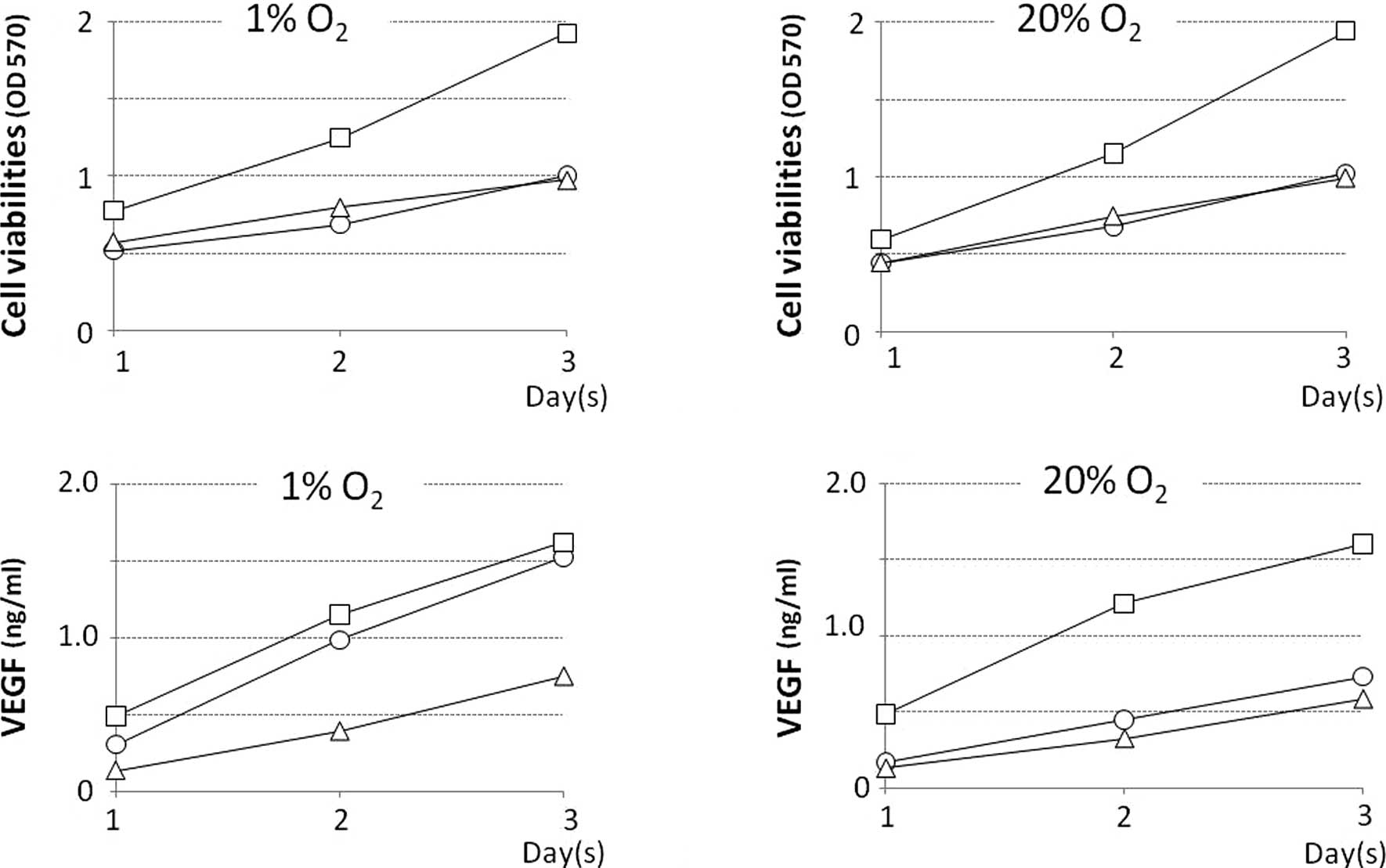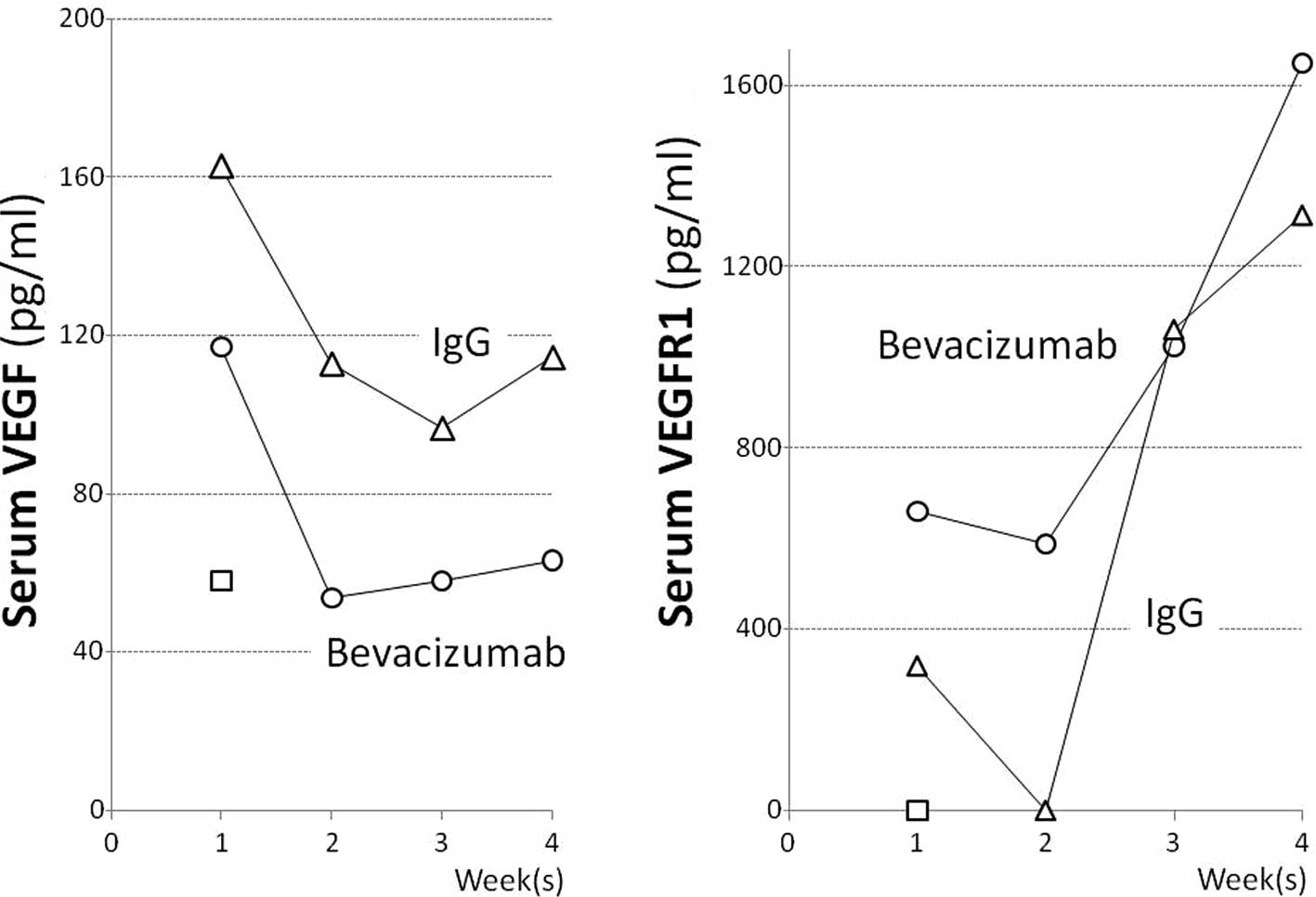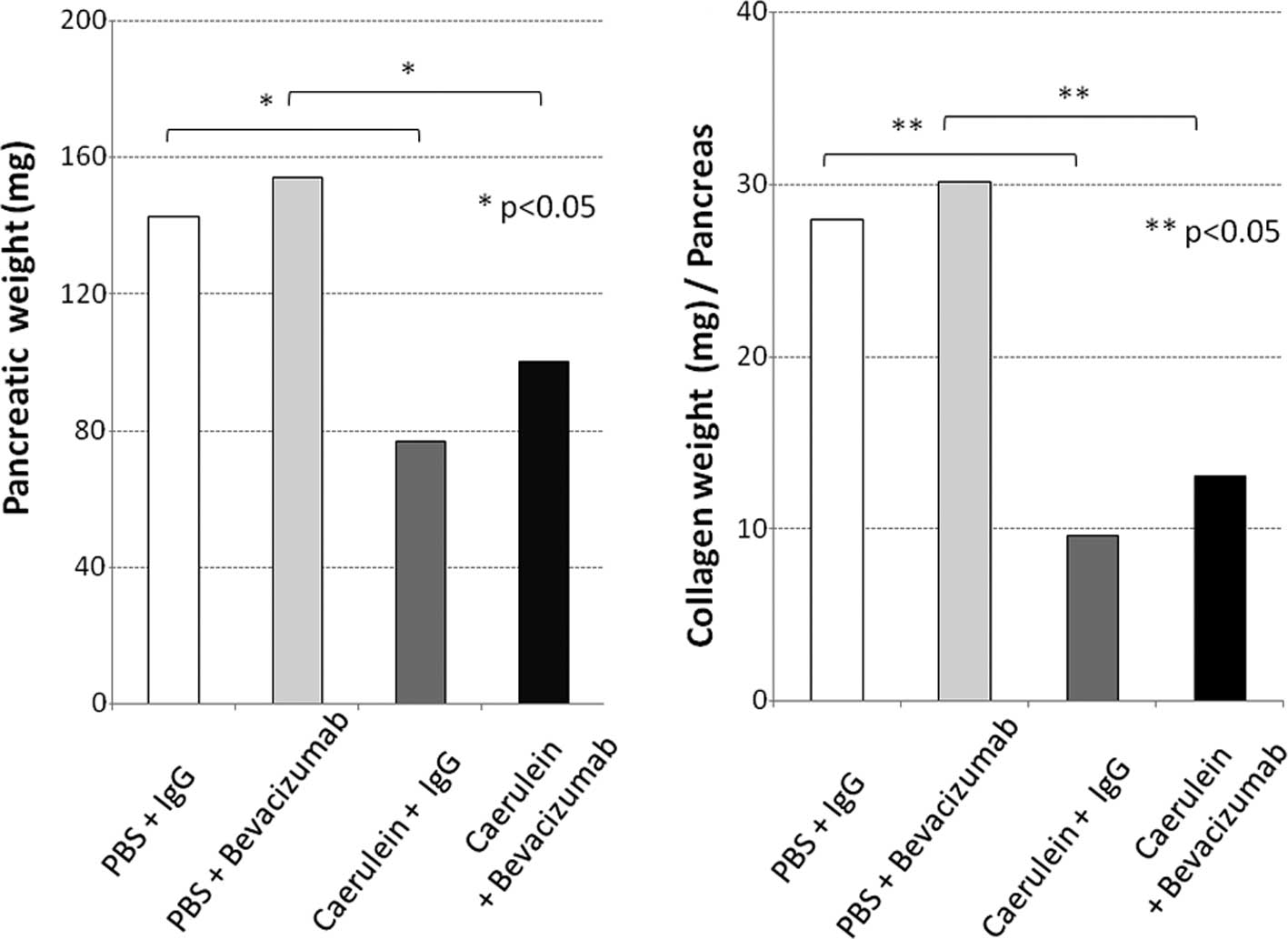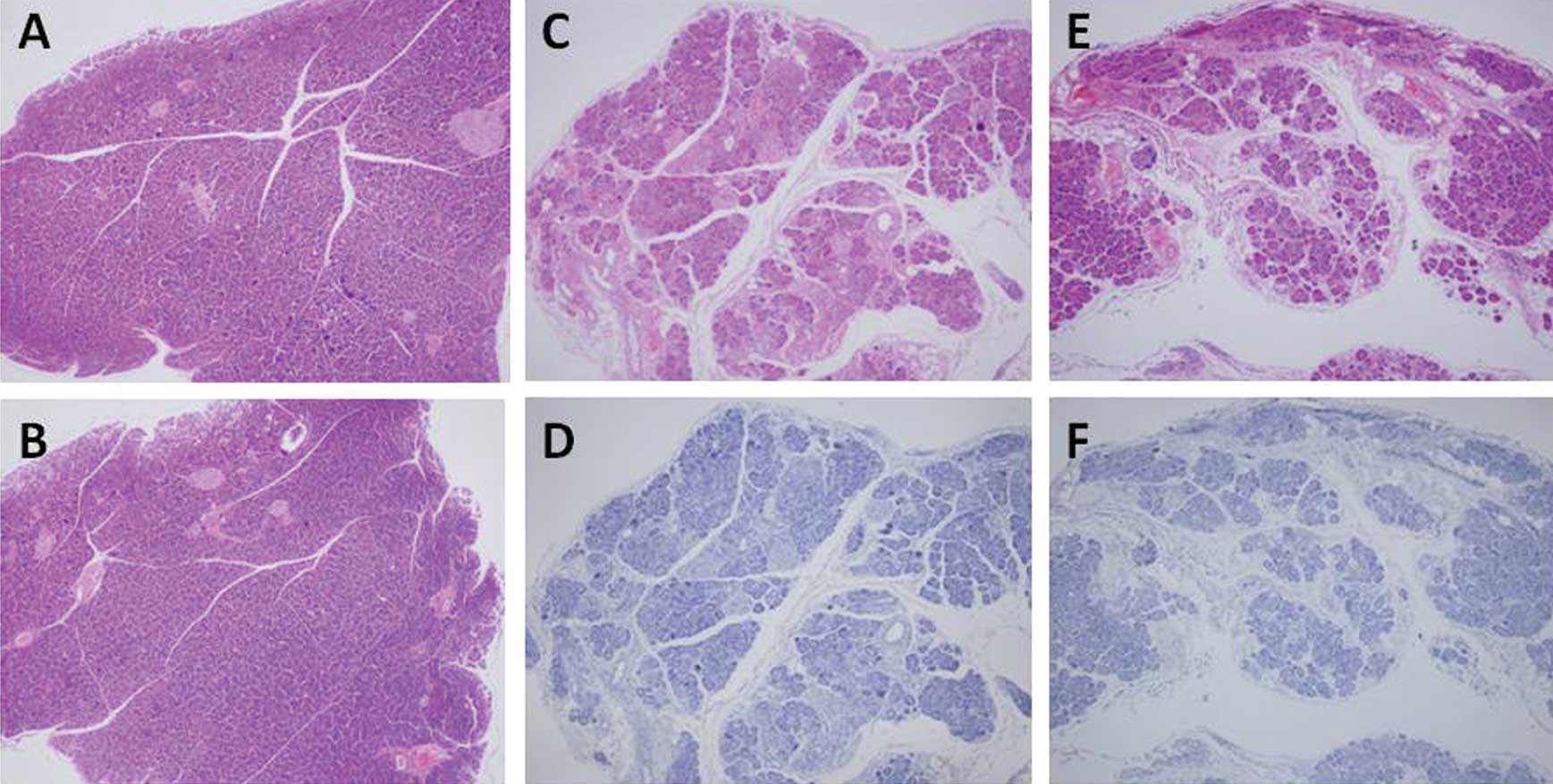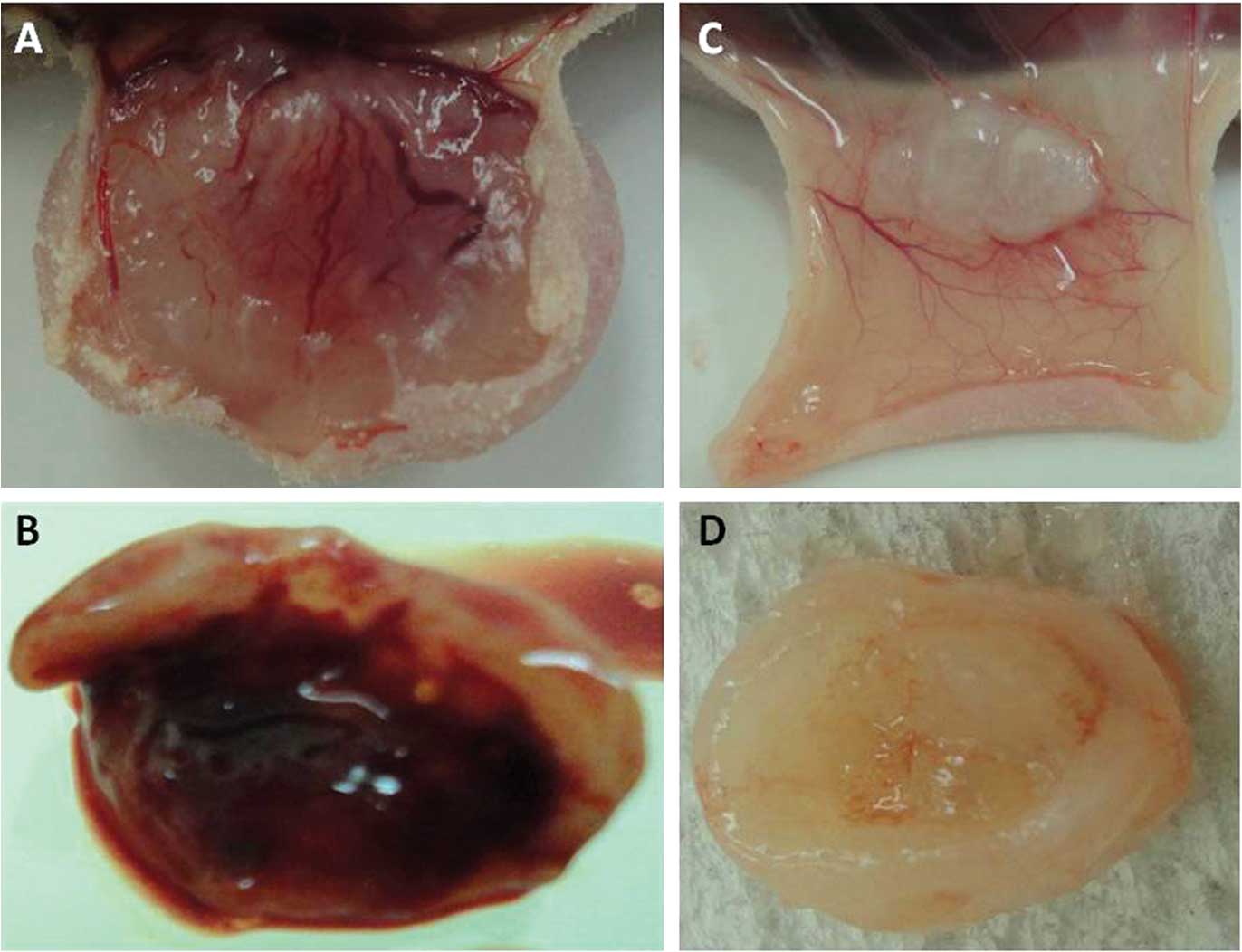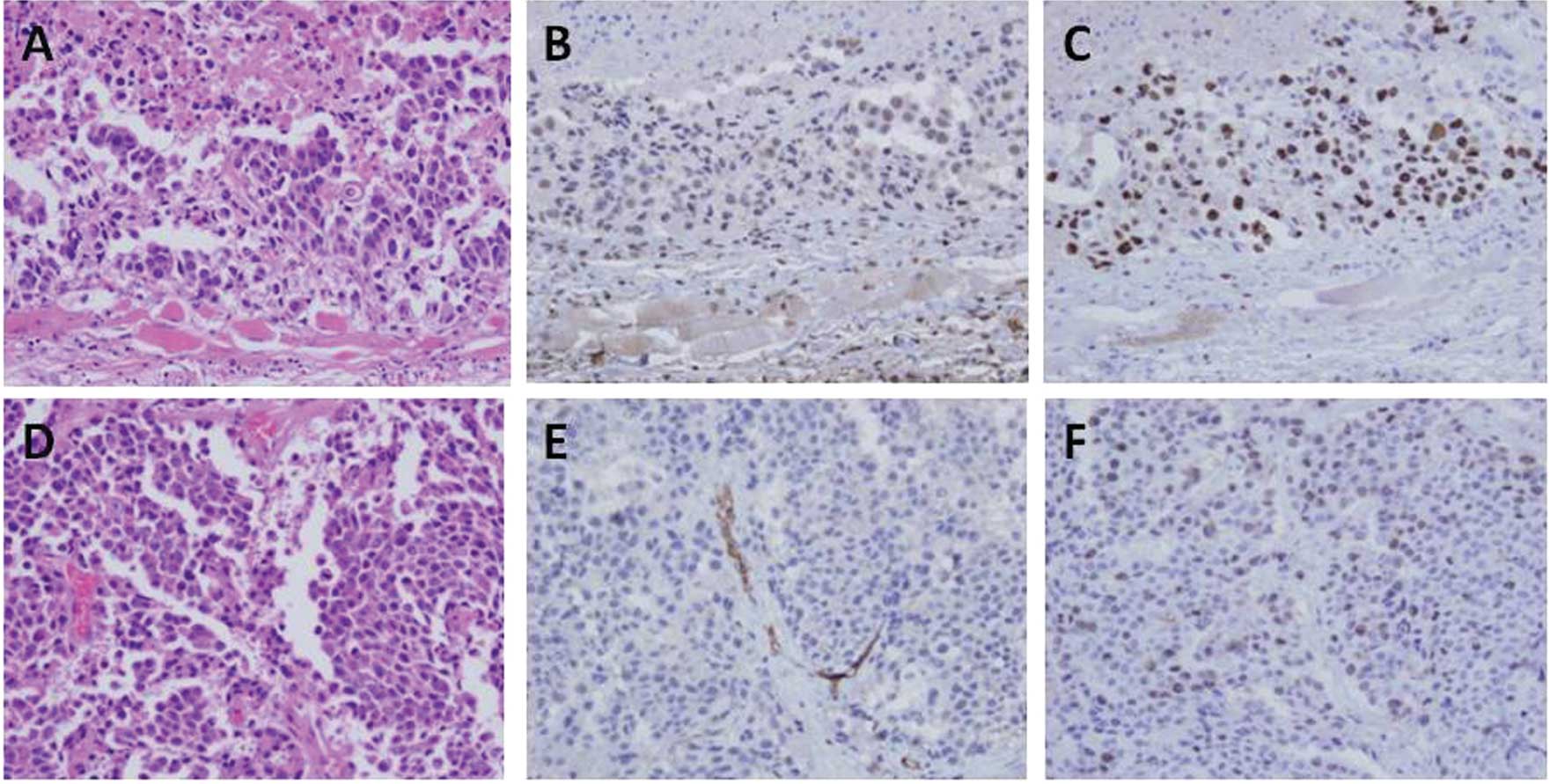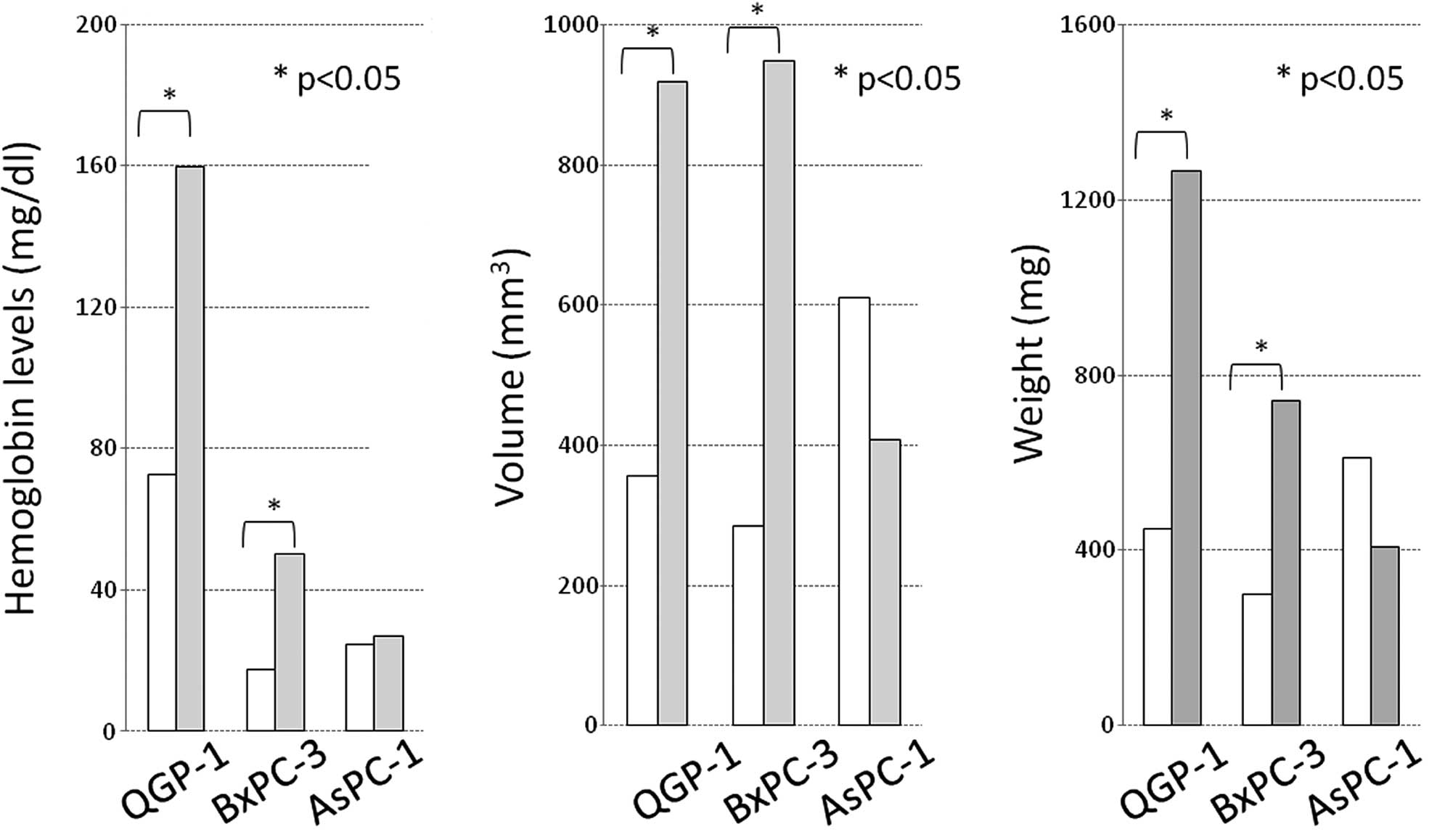|
1
|
Eriksson B and Oberg K: Neuroendocrine
tumours of the pancreas. Br J Surg. 87:129–131. 2000. View Article : Google Scholar
|
|
2
|
Modlin IM, Oberg K, Chung DC, et al:
Gastroenteropancreatic neuroendocrine tumours. Lancet Oncol.
9:61–72. 2008. View Article : Google Scholar
|
|
3
|
Oberg KE, Reubi JC, Kwekkeboom DJ and
Krenning EP: Role of somatostatins in gastroenteropancreatic
neuroendocrine tumor development and therapy. Gastroenterology.
139:742–753. 2010. View Article : Google Scholar : PubMed/NCBI
|
|
4
|
Kazanjian KK, Reber HA and Hines OJ:
Resection of pancreatic neuroendocrine tumors: results of 70 cases.
Arch Surg. 141:765–769. 2006. View Article : Google Scholar : PubMed/NCBI
|
|
5
|
Takahashi Y, Akishima-Fukasawa Y,
Kobayashi N, et al: Prognostic value of tumor architecture,
tumor-associated vascular characteristics, and expression of
angiogenic molecules in pancreatic endocrine tumors. Clin Cancer
Res. 13:187–196. 2007. View Article : Google Scholar
|
|
6
|
Pavel ME, Hassler G, Baum U, Hahn EG,
Lohmann T and Schuppan D: Circulating levels of angiogenic
cytokines can predict tumour progression and prognosis in
neuroendocrine carcinomas. Clin Endocrinol. 62:434–443. 2005.
View Article : Google Scholar : PubMed/NCBI
|
|
7
|
Karayiannakis AJ, Bolanaki H, Syrigos KN,
Asimakopoulos B, Polychronidis A, Anagnostoulis S and Simopoulos C:
Serum vascular endothelial growth factor levels in pancreatic
cancer patients correlate with advanced and metastatic disease and
poor prognosis. Cancer Lett. 194:119–124. 2003. View Article : Google Scholar
|
|
8
|
Chang YT, Chang MC, Wei SC, et al: Serum
vascular endothelial growth factor/soluble vascular endothelial
growth factor receptor 1 ratio is an independent prognostic marker
in pancreatic cancer. Pancreas. 37:145–150. 2008. View Article : Google Scholar
|
|
9
|
Pàez-Ribes M, Allen E, Hudock J, et al:
Antiangiogenic therapy elicits malignant progression of tumors to
increased local invasion and distant metastasis. Cancer Cell.
15:220–231. 2009.PubMed/NCBI
|
|
10
|
Willett CG, Boucher Y, di Tomaso E, et al:
Direct evidence that the VEGF-specific antibody bevacizumab has
antivascular effects in human rectal cancer. Nat Med. 10:145–147.
2004. View Article : Google Scholar : PubMed/NCBI
|
|
11
|
Jain RK, Duda DG, Clark JW and Loeffler
JS: Lessons from phase III clinical trials on anti-VEGF therapy for
cancer. Nat Clin Pract Oncol. 3:24–40. 2006. View Article : Google Scholar : PubMed/NCBI
|
|
12
|
Yao JC, Phan A, Hoff PM, et al: Targeting
vascular endothelial growth factor in advanced carcinoid tumor: a
random assignment phase ll study of depot octreotide with
bevacizumab and pegylated interferon alpha-2b. Clin Oncol.
26:1316–1323. 2008. View Article : Google Scholar
|
|
13
|
Kindler HL, Friberg G, Singh DA, et al:
Phase II trial of bevacizumab plus gemcitabine in patients with
advanced pancreatic cancer. J Clin Oncol. 23:8033–8040. 2005.
View Article : Google Scholar : PubMed/NCBI
|
|
14
|
Kindler HL, Niedzwiecki D, Hollis D, et
al: A double-blind, placebo-controlled, randomized phase III trial
of gemcitabine (G) plus bevacizumab (B) versus gemcitabine plus
placebo (P) in patients (pts) with advanced pancreatic cancer (PC):
a preliminary analysis of Cancer and Leukemia Group B (CALGB). J
Clin Oncol. 25(Suppl 18): 45082007.
|
|
15
|
Kuehn R, Lelkes PI, Bloechle C, Niendorf A
and Izbicki JR: Angiogenesis, angiogenic growth factors, and cell
adhesion molecules are upregulated in chronic pancreatic diseases:
angiogenesis in chronic pancreatitis and in pancreatic cancer.
Pancreas. 18:96–103. 1999. View Article : Google Scholar
|
|
16
|
Takahashi K, Hirano F, Matsumoto K, Aso K
and Haneda M: Homeobox gene CDX2 inhibits human pancreatic cancer
cell proliferation by down-regulating cyclin D1 transcriptional
activity. Pancreas. 38:49–57. 2009. View Article : Google Scholar : PubMed/NCBI
|
|
17
|
Georgieva I, Koychev D, Wang Y, Holstein
J, Hopfenmüller W, Zeitz M and Grabowski P: ZM447439, a novel
promising aurora kinase inhibitor, provokes antiproliferative and
proapoptotic effects alone and in combination with bio- and
chemotherapeutic agents in gastroenteropancreatic neuroendocrine
tumor cell lines. Neuroendocrinology. 91:121–130. 2010. View Article : Google Scholar
|
|
18
|
Scholz A, Wagner K, Welzel M, et al: The
oral multitarget tumour growth inhibitor, ZK 304709, inhibits
growth of pancreatic neuroendocrine tumours in an orthotopic mouse
model. Gut. 58:261–270. 2009. View Article : Google Scholar : PubMed/NCBI
|
|
19
|
Neuschwander-Tetri BA, Burton FR, Presti
ME, et al: Repetitive self-limited acute pancreatitis induces
pancreatic fibrogenesis in the mouse. Dig Dis Sci. 45:665–674.
2000. View Article : Google Scholar : PubMed/NCBI
|
|
20
|
Carrière C, Young AL, Gunn JR, Longnecker
DS and Korc M: Acute pancreatitis markedly accelerates pancreatic
cancer progression in mice expressing oncogenic Kras. Biochem
Biophys Res Commun. 382:561–565. 2009.PubMed/NCBI
|
|
21
|
Liu J, Qu R, Ogura M, Shibata T, Harada H
and Hiraoka M: Real-time imaging of hypoxia-inducible factor-1
activity in tumor xenografts. J Radiat Res. 46:93–102. 2005.
View Article : Google Scholar : PubMed/NCBI
|
|
22
|
Hurwitz HI, Yi J, Ince W, Novotny WF and
Rosen O: The clinical benefit of bevacizumab in metastatic
colorectal cancer is independent of K-ras mutation status: analysis
of a phase III study of bevacizumab with chemotherapy in previously
untreated metastatic colorectal cancer. Oncologist. 14:22–28. 2009.
View Article : Google Scholar
|
|
23
|
Panzuto F, di Fonzo M, Iannicelli E, et
al: Long-term clinical outcome of somatostatin analogues for
treatment of progressive, metastatic, well-differentiated
entero-pancreatic endocrine carcinoma. Ann Oncol. 17:461–466. 2006.
View Article : Google Scholar
|















